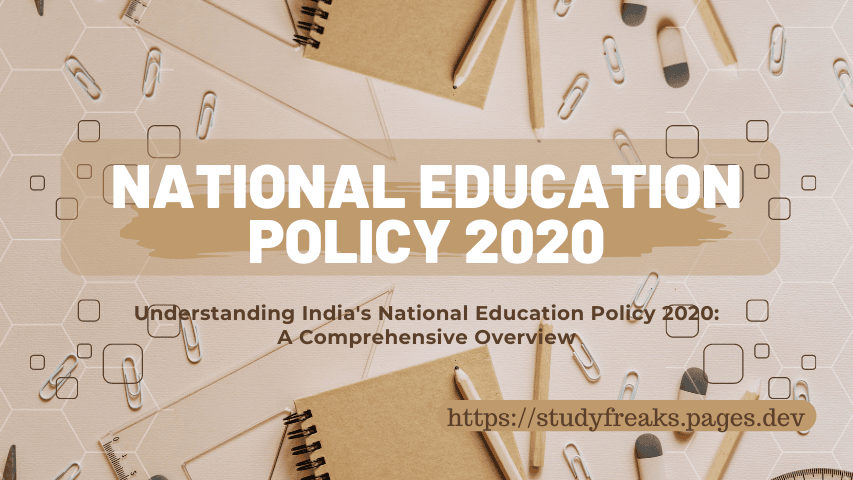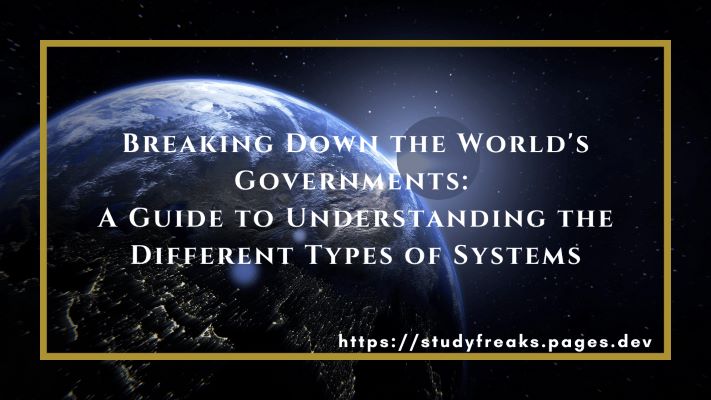Understanding India's National Education Policy 2020: A Brief

Table of Contents
The National Education Policy (NEP) 2020 is a comprehensive framework that aims to overhaul the education system in India. It was approved by the Union Cabinet in July 2020 and is the first education policy of the 21st century. The NEP 2020 focuses on making India a global knowledge superpower by promoting critical thinking, creativity, and scientific temper. In this article, we will understand the key aspects of the NEP 2020.
Introduction
The NEP 2020 aims to create a modern, equitable, and vibrant education system that prepares students for the challenges of the 21st century. It focuses on the holistic development of students by providing a flexible and multidisciplinary curriculum. The policy aims to create a learning environment that promotes critical thinking, creativity, and problem-solving skills.
Early Childhood Education and Foundational Literacy and Numeracy
The NEP 2020 emphasizes the importance of early childhood education and foundational literacy and numeracy. It aims to provide universal access to quality early childhood care and education for all children up to the age of six. The policy also emphasizes the need to provide foundational literacy and numeracy skills to all students by the end of grade three. To achieve this, the policy proposes the introduction of a National Curricular and Pedagogical Framework for Early Childhood Education (NCPFECCE) and a National Mission on Foundational Literacy and Numeracy.
School Education
The NEP 2020 emphasizes the need to transform the existing school education system by promoting experiential learning, multidisciplinary education, and flexibility in the curriculum. It aims to reduce the curriculum load on students and make education more student-centric. The policy proposes the introduction of a 5+3+3+4 curricular structure, where the first five years are foundational stage (ages 3-8), the next three years are preparatory stage (ages 8-11), the next three years are middle stage (ages 11-14), and the last four years are secondary stage (ages 14-18). The policy also proposes the introduction of vocational education from grade six and coding from grade six. To implement these changes, the policy proposes the creation of a National Curriculum Framework (NCF) for School Education.
Higher Education
The NEP 2020 proposes a multidisciplinary and flexible education system in higher education. It aims to increase the gross enrollment ratio (GER) in higher education to 50% by 2035. The policy also proposes the introduction of a four-year undergraduate degree program with multiple exit options and a credit-based system. It also aims to create a single regulator for higher education, the Higher Education Commission of India (HECI), to replace existing regulatory bodies like the University Grants Commission (UGC) and All India Council for Technical Education (AICTE). The policy proposes the creation of a National Research Foundation (NRF) to promote and fund research in higher education. The policy also proposes the creation of a National Education Technology Forum (NETF) to promote the use of technology in education.
Teacher Education
The NEP 2020 emphasizes the need for quality teacher education programs. It proposes a four-year integrated B.Ed. program for teachers. The policy also aims to create a National Mission for Mentoring to provide mentoring and professional development support to teachers. To implement these changes, the policy proposes the creation of a National Council for Teacher Education (NCTE).
Technology in Education
The NEP 2020 emphasizes the use of technology in education. It proposes the creation of a National Educational Technology Forum (NETF) to provide a platform for the free exchange of ideas on the use of technology in education. The policy also proposes the creation of a dedicated unit in every school to provide digital education and support for teachers and students. The NEP 2020 emphasizes the use of technology to increase access to education and promote lifelong learning.
Assessment and Evaluation
The NEP 2020 proposes a shift in the assessment and evaluation system from rote learning to a competency-based approach. It aims to develop assessments that measure higher-order skills such as critical thinking, problem-solving, and creativity. The policy also proposes the introduction of a National Assessment Centre, PARAKH (Performance Assessment, Review, and Analysis of Knowledge for Holistic Development), to develop assessment tools and techniques.
Governance and Funding
The NEP 2020 proposes a decentralized and flexible governance structure for education. It aims to increase the involvement of local communities and stakeholders in the decision-making process. The policy also proposes the creation of a Rashtriya Shiksha Aayog (National Education Commission) to serve as the apex body for education in India. The NEP 2020 also emphasizes the need for increased funding for education and proposes increasing public spending on education to 6% of GDP.
Conclusion
The NEP 2020 is a comprehensive framework that aims to transform the education system in India. It emphasizes the need for a holistic and multidisciplinary approach to education that promotes critical thinking, creativity, and problem-solving skills. The policy proposes significant changes in early childhood education, school education, higher education, teacher education, technology in education, assessment and evaluation, governance, and funding. The successful implementation of the NEP 2020 will require the cooperation of all stakeholders, including the government, educators, parents, and students, and will play a crucial role in making India a global knowledge superpower.

